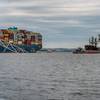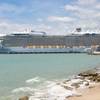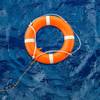Maritime operations supporting the Arctic region's oil, gas and mineral reserves are poised for vast growth.
Bankers, insurers and conservationists will be among those sounding a warning note when the third annual Arctic Shipping conference, in St. Petersburg in April, explores the commercial opportunities against backdrop of political, financial and technical challenges.
Following its 2005 debut in Helsinki, the event returns to St Petersburg - which hosted 200 attendees last year - at a time when Russia is underlining its prime market position with new-found intent to take a controlling stake in projects based on its natural resources.
Gerbrand Vroegop, Russia relationship manager in ING's asset-based shipping finance department, will highlight the resulting concerns in his analysis of Arctic financing demand over the next five years.
Risks for insurers will be explained by Gard underwriter Reidun Eikeland
Haahjem.
In a reflection of the Arctic's growing significance, this year's conference from April 17-19 has been expanded from two to three days and will be followed by a one-day seminar on oil spill and pollution response in cold climates.
Ahead of finance and environmental issues, the main conference program starts with an overview of policy in the Russian, US, Canadian and Norwegian sectors.
This covers port developments, energy and mining projects, the Arctic Council's marine shipping assessment, international agreements and management plans for the Northern Sea Route and Barents Sea. Speakers include government representatives, industry leaders and academics. Day 2 features design and propulsion requirements for ships ranging from dry bulk and LNG carriers to shuttle tankers and nuclear icebreakers. Other topics include the design impact of environmental regulations an engineering solutions to assure ice strength.
A panel of port directors will discuss the operational challenges of ice conditions, including the effect on cargo handling and demand for icebreaker assistance. The day ends with a choice of roundtable discussions on subjects such as ice navigation, emergency response and emissions reduction.
Day 3 opens with a session on risk management, crewing and navigation.
This includes panel analysis of Polar Class unified requirements, a review of icebreaking operations on the Northern Sea Route and a debate on standards for crew training and ice navigation, with input from owners, class societies, national administrations and academies.
The session also examines forecasting and ship routing through ice, highlighting the role of pilots and the use of satellites, radar and ice information services in the Arctic, Baltic and Great Lakes.
The final conference session returns to technical aspects of ice operations.
Featured topics include the use of low speed two-stroke engines for Ice class vessels and the importance of choosing the correct coatings for different hull areas when operating in extreme conditions.
Subscribe for
Maritime Reporter E-News
Maritime Reporter E-News is the maritime industry's largest circulation and most authoritative ENews Service, delivered to your Email five times per week










